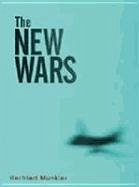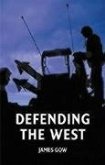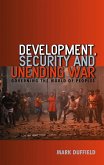This important new book deals with the changing nature of war in the post-Cold War era and the emergence of new forms of warfare in which warlords, mercenaries and terrorists play an increasingly important role. In the modern era, warfare came to play a crucial role in the formation of states, whereas the new wars emerging at the beginning of the 21st century have mostly gone together with the failure or collapse of states. The author draws out the key shifts involved in this process: from symmetrical conflicts between states to asymmetrical global relationships of force; from national armies to increasingly private or commercial bands of warlords, child soldiers and mercenaries; from pitched battles to protracted conflicts in which there is often little fighting and most of the violence is directed against civilians. Changes in weapons technology have combined with complex economic factors to make the prospect of endlessly simmering wars a real danger in the years to come. Against this background, the author outlines the rise of a novel form of international terrorism, conceived more as a political method of communication than as an element in a military strategy. The resulting challenges faced by Western governments, and the costs and benefits associated with any response, are taken up in a concluding section that contrasts the characteristic European and American approaches and examines the implications for the future of international law. This book will be of important to students of political science, international relations, war and peace studies, conflict studies and peace studies. It will also appeal to the general reader with an interest in this topical subject.
Hinweis: Dieser Artikel kann nur an eine deutsche Lieferadresse ausgeliefert werden.
Hinweis: Dieser Artikel kann nur an eine deutsche Lieferadresse ausgeliefert werden.








